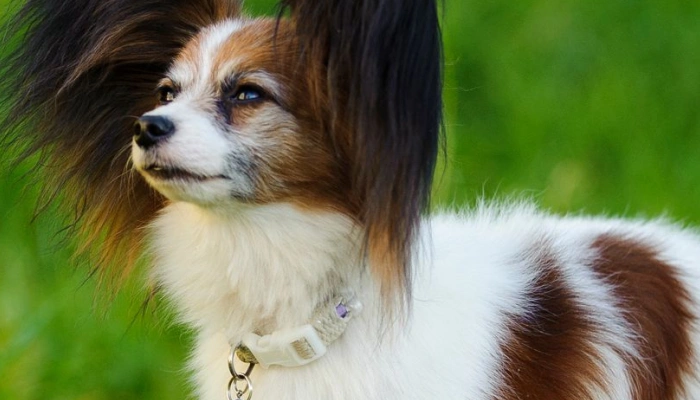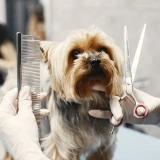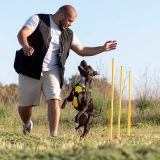The Papillon gets its name from the French word for “butterfly”, thanks to its distinctively large, fringed ears. This toy breed has a long history as a noble lapdog in Europe but surprises many with its intelligence, energy, and athleticism.
Despite their delicate look, Papillons are bold, confident, and always alert. They love to play, learn tricks, and excel in agility and obedience. Their small size makes them great for apartment living, but they need regular interaction and mental stimulation.
Papillons are known for being extremely affectionate with their families, good with children and other pets when socialized early, and are always eager to participate in family life.







